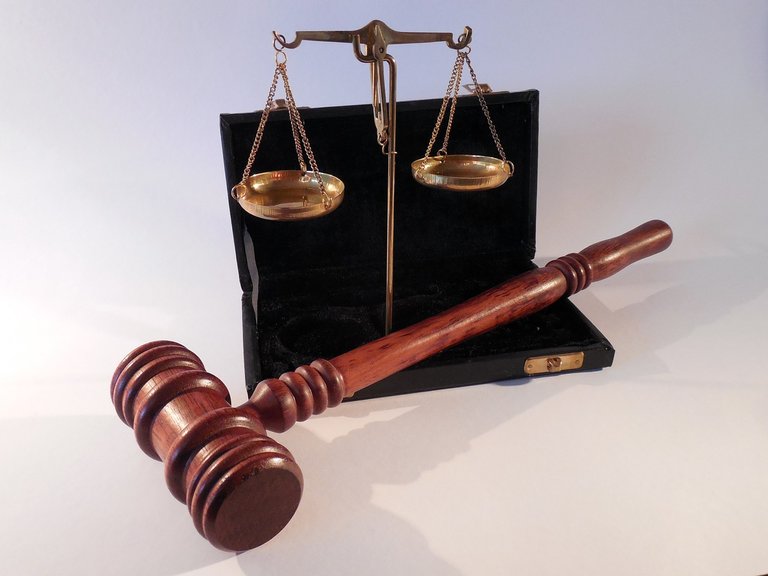
Its easy to make the case for limiting government by ending the drug war, privatizing the post office, or shutting down a variety of needless government bureaucracies. However, offering theoretical and practical solutions to issues such as police, courts, and military for example, and how that might work in a completely voluntary society, is a much more difficult task. But this need not be the case.
If you can understand why the government shouldn’t be in charge of something like the production of pizza or shoes, with the understanding that the private sector can and definitely should handle the successful production of these goods, then it shouldn’t be too much of a stretch to apply the same logic to important issues such as protection of private property and contract law.
How can we handle disputes when two parties disagree? Or when one party is alleged to have violated the rights of, or contract agreement with another?

The market exists to meet the needs and wants of all participants.
There are some empirical cases of the private market creating solutions in the past for contract law and property protection, so I would like to go through just a few of them.

California Gold Rush
The California Gold Rush began in 1848, when the west coast of America was still undeveloped, the prospect of gold caused an inflow of people from both the US and abroad seeking to get rich.
The population of the area at the time went from 1000 to 100,000 in just one year, in an area that had no government and thus no traditional legal system as you might be familiar with today. In the midst of all the gold prospecting, issues such as land and mineral claims were bound to arise at some point. Believe it or not, there was a workable, though not perfect, solution which came about in the absence of any government at the time.
According to the paper “Order Without Law? Property Rights During the California Gold Rush by Karen Clay and Gavin Wright, the authors note that,
“Among law and economics specialists, the mining districts of the California gold rush are often cited as canonical examples of spontaneous establishment of secure property rights in the absence of legal authority. Relying primarily on studies by Charles Howard Shinn and John Umbeck, accounts describe how meetings of local miners drew up rules defining how to acquire and maintain rights to mining claims in a specified geographic area, and how these rights would be enforced.”
Eventually of course, California would become an official state and the legal tradition that started during the gold rush didn’t last.

Another example dating back even farther is what's known as lex mercatoria, or merchants law.
In those times, If you were a merchant who had sold to a foreign merchant X amount of spices for example, the foreign buyer might later claim that you only fulfilled 80% of the trade that you had agreed upon. But you personally checked and made sure the ship was stocked with the proper amount of goods and might not agree that you didn't hold up your end of the bargain.
In this case, there would be a need to settle this dispute urgently, and both merchants will want to move on as soon as possible and continue in their economic endeavors.
Lex mercatoria developed to solve this market need, a quick and relatively simple way to arbitrate the kinds of issues particular to international traders. The forthcoming international trade laws set by governments would be generally based on the framework used in merchants law.

Resolving Disputes...
Today, the need for those in business and for other private individuals, to quickly resolve their disputes is just as important a need, and it could be argued that the rise in ADR (alternative dispute resolution) and more recently ODR (online dispute resolution) is yet again a response to this market need.
The use of technology to assist ADR proceedings also makes perfect sense, as the process of selecting an optimal date for both parties to attend in person is eliminated with the convenience of being able to attempt resolution online with the help of various technology. There are viable alternative voluntary solutions available, for trying to resolve disputes and seek remedy over private property violations etc.
A Need For Protection...
This specific type of service provided by these armored truck companies might well be the closest thing to private police that exists in the world, given the fact that the truck guards are armed and (in legitimately legal situations) allowed to defend the property that they were contracted to safeguard. For those that really think the idea of privatized police is completely bonkers, consider the fact that there has never been any trend of Brinks guards murdering the very customers they work for, whereas the number of citizens who unjustly lose their lives to the people in charge of protecting them (the police) continues to rise.

A private firm whose main goal is profit maximization via voluntary exchange of private property has zero incentive to beat, taze, kidnap, and murder their own customers.
Why would any sane human want to voluntarily agree to a system of protection where agents could enforce a vast number of ever-increasing laws, which ultimately result in murder if enforcement of any of those laws is taken to its logical ends. And many of those laws permit violence to be initiated against peaceful individuals who haven't violated the property rights of any other party.
The reason that most people can and do peacefully engage in commerce on a regular basis with local retailers is NOT because they know that the state is there to punish them if they steal or destroy property. It's because they believe that they are going to benefit from the exchange, and with their peaceful actions in pursuing that exchange they are also demonstrating that they recognize and respect the property rights of the other individual.
I doubt that there has ever been an actual slave who was also a subjectivist as far as human rights go. Private property is inherently universal to every human being regardless of race, religion, or culture. No one holds a higher claim over your life than you do, you own yourself. So don’t scoff at the notion of the free market being a viable platform to enable people to meet the needs of others (property protection and conflict resolution etc) that have traditionally provided been provided by police and courts as we are familiar with today.
Wonderfully made :-)